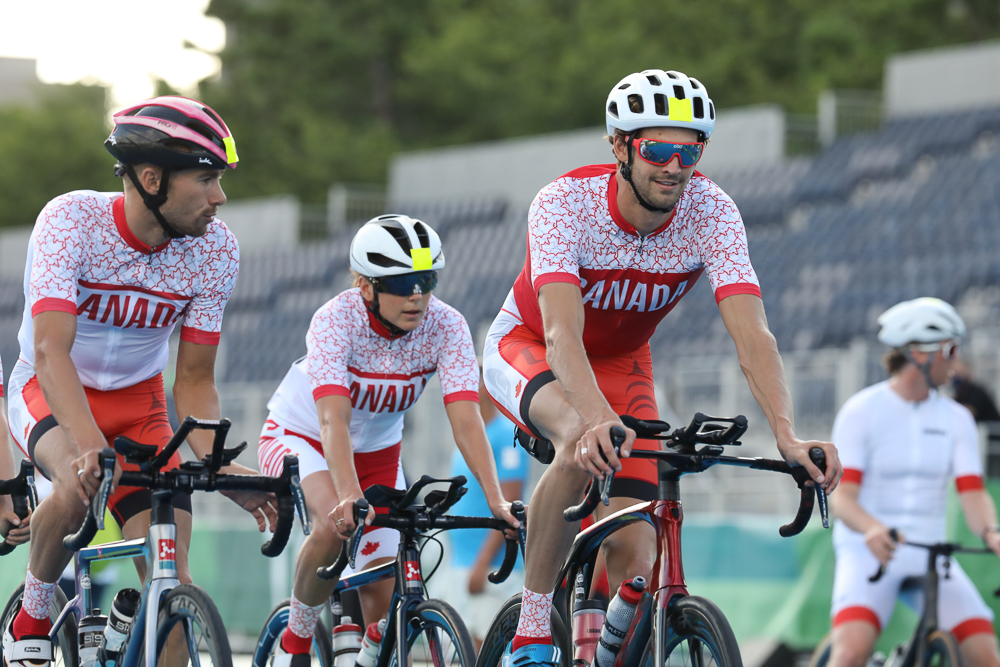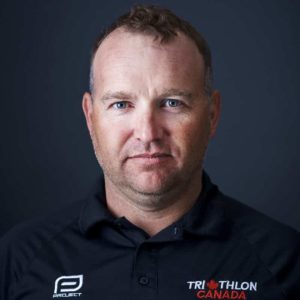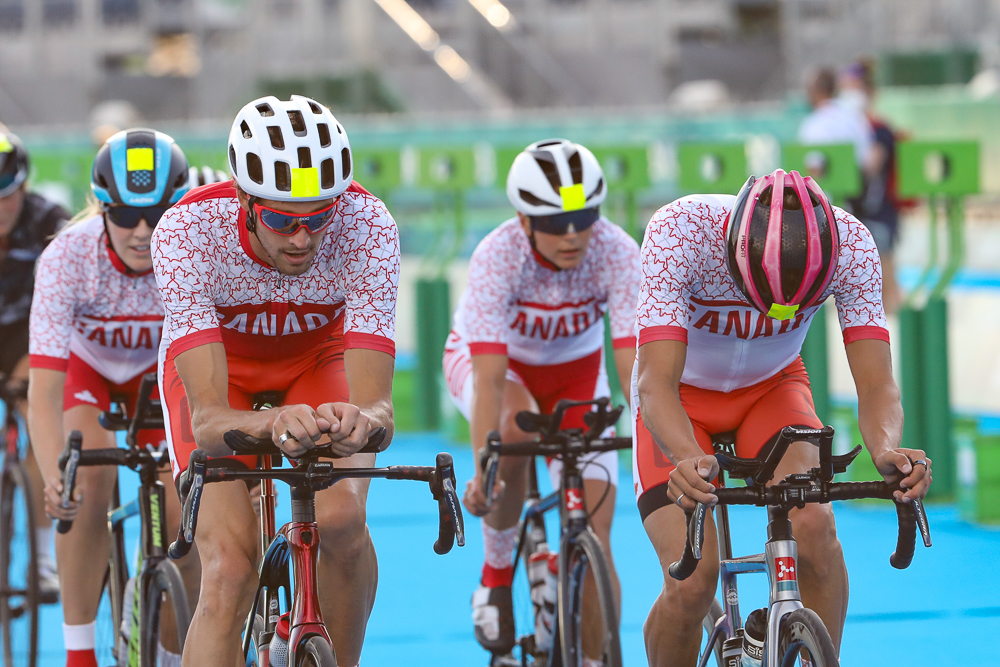Prior to resignation, Triathlon Canada head coach Jono Hall cited for abusing coach/ athlete relationship and not creating safe coaching environment
According to panel Hall “failed in his duties under the Code of Conduct and Ethics.”
 Photo by:
Frank Wechsel
Photo by:
Frank Wechsel
On Friday Triathlon Canada announced that Jono Hall had resigned as the head coach of Triathlon Canada’s National Performance Centre. In its announcement, Triathlon Canada said that “Hall’s resignation is in no manner whatsoever related to the recent safe sport claims voiced in the community regarding his alleged breaches of Triathlon Canada’s Code of Conduct and Ethics.”
In June Triathlon Canada made a statement about that safe sport complaint, but did not name the athlete, or the coach, and said the disciplinary sanction had “been satisfactorily completed.”
Triathlon Canada has not published the “Reasons for Decision” document, which cites Hall for abusing the coach/ athlete relationship and not creating a safe coaching environment. Hall received a five-day suspension.
Sharpe was encouraged to put the complaint forward by World Triathlon after the sport’s international governing body interviewed him “regarding an investigation it was conducting into Triathlon Canada.”
“The complaint I made through Triathlon Canada’s Discipline and Complaints policy resulted in an independent investigation into the conduct of a Triathlon Canada Coach and a Triathlon Canada employee,” Sharpe said at the time. “After a formal discipline hearing was conducted, a decision was rendered resulting in the suspension of a Triathlon Canada coach.”

One of the main issues outlined in the Reasons for Decision document was an incident that took place during a training camp in Portugal last year. Sharpe and another athlete were involved in a crash while motor-pacing behind a new coach they hadn’t worked with before. Sharpe cracked his helmet and was bleeding after the crash and was later told to continue the workout. After refusing to continue, Sharpe was later sanctioned by Triathlon Canada.
“I am troubled that there was a lack of concussion protocol in place and the direction of the coach was to continue,” wrote Russell Gregory in the decision. “That becomes even more troubling where the Complainant (Sharpe), at the behest of the Respondent (Hall), is sanctioned for negligence in leaving the crash site. Cracked helmet and blood call for immediate attention not to ride on to assess – riding through obvious pain in that context was clearly not the correct course of action.”
Gregory also addressed issues with Hall’s “failure of his duties under the Code of Conduct and Ethics.”
“The environment was one in which athletes, including the Complainant, were fearful of the reactions of the Respondent,” Gregory wrote. “The Respondent himself has made a number of observations about the Complainant which evidence his attitude of more than just frustration, an attitude that viewed the Complainant as lazy, soft, a Triathlon Tourist, not a high achiever. Those are opinions of the character of the Complainant which the witnesses noticed and were manifested in singling the Complainant out, treating him in a condescending and unfair manner.”
“The attitudes and opinion the Respondent held of the Complainant seem so at odds with the success of the Complainant,” Gregory continued. “At least one race, his participation in the 2019 Olympics [Test Event] as a domestique (supporting team role), assisted in putting a Canadian in gold medal position. That speaks of teamwork and high achievement. It speaks volumes of performance measure and of the unselfish effort of the Complainant on race day.”
Sharpe would also continue to play an important domestique role for Canadian medal hopeful Tyler Mislawchuk after the Tokyo Test Event in 2019, playing a critical role in the wins in Huatulco and Los Angeles leading up to the Games, and helping control the bike leg at the Olympics.
While Sharpe had asked that Hall be suspended for six months, Gregory was not willing to suspend Hall for that long.
“I am troubled that the Respondent throughout has not acknowledged any failures whatsoever,” Gregory wrote. “To recognize imperfection is not a weakness nor an admission of fault that might lead to a decision against a party. The converse however is that a complete inability to recognize the role the Respondent played in the toxic relationship with the Complainant is indicative of a problem. Any sanction that did not include some suspension would not, in my view, ensure the Respondent recognized the gravity of his actions. As such I believe that a short sharp suspension is warranted to get the Respondent’s attention.”
Hall was reprimanded for his infractions of the Triathlon Canada Code of Conduct and Ethics and was sanctioned for five days from June 10 to June 15, and was required to take Coaching Association of Canada courses on concussion protocols and Safe Sport Training.
Triathlon Magazine Canada reached out to Hall for comment on the decision – he replied that he is “unable to comment in depth until after his last day at Triathlon Canada.”
Sharpe is not the first athlete who has made complaints about Hall. Last fall Triathlon Magazine Canada reached out to Triathlon Canada with questions about a complaint that Sharpe’s teammate, Joanna Brown, had filed against the coach. We received a letter from Triathlon Canada’s legal counsel, Adam Klevinas, that said, in part:
– Triathlon Canada received a complaint in 2018 regarding Mr. Hall, which was investigated by an independent investigator. The conclusion of this investigation was that Mr. Hall had not engaged in any wrongdoing;
– Triathlon Canada was made aware of a USA Triathlon investigation regarding a complaint made by an American athlete against Mr. Hall in 2018; however, despite its continued and best efforts to obtain information regarding this complaint, including the outcome of the investigation, Triathlon Canada, is unaware of the particulars of that investigation and understood the investigation was closed;
– After Triathlon Canada’s investigation was concluded, and after it learned of the USA Triathlon Investigation, Triathlon Canada requested that Mr. Hall undergo professional development training in 2018. Mr. Hall voluntarily participated in this training and Triathlon Canada was informed that he successfully completed it. Since this time, and to Triathlon Canada’s knowledge, Mr. Hall has not been the subject of any new complaint, whether formal or informal.
The letter from Klevinas also said that “Triathlon Canada takes safe sport matters very seriously and will not tolerate any insinuations to the contrary. As such, please be advised that Triathlon Canada reserves its rights to take any legal action to protect its reputation or otherwise.”
The athlete involved in the USA Triathlon investigation was Chelsea Burns, who had been coached by Hall. She says that an independent investigation found that Hall had violated USA Triathlon’s SafeSport Policy and that he would be required to take additional training.

“The road to representing Canada at the Olympics is certainly not an easy endeavour,” Sharpe writes. “However, the conditions I had to endure in order to achieve this were above and beyond simply qualifying. It has been an extremely difficult journey, which almost had me quit the sport.”
“In Canada, and across the sporting world generally, there has been and continues to be a reckoning that exposes harassment and abuse of power within high performance sport,” Sharpe continued. “One of the reasons I brought this complaint forward is because I felt a responsibility towards future athletes. I hope that this suspension will catalyze positive change and ensure the next generation of athletes are protected.”
“We’ve gone to great lengths to learn from this experience, so it’s important that people are aware of the findings,” Sharpe said today.
World Triathlon was unable to comment on the investigation cited in Sharpe’s statement because the investigation, which is independent of the sanctions imposed by Triathlon Canada, is still ongoing.
Other sports, including rowing and track and field have published the Reasons for Decision documents in similar complaints.
“Publishing decisions protects trust in the system,” says Kate Scallion, Matt Sharpe’s lawyer through the complaint process. “It promotes transparency and accountability; it protects current and future participants in the sport system, and, if the respondent has been cleared of the complaint, either wholly or in part, also it also protects them, and discourages frivolous complaints.”
